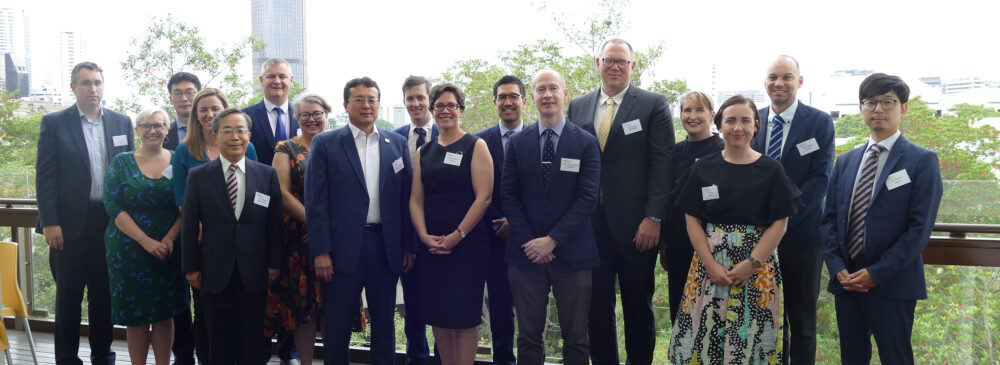On the 29 November 2019, the Griffith Asia Institute hosted the 9th annual Australia-Japan Dialogue with the generous support of Japan’s Ministry of Foreign Affairs and the Japanese Consulate-General in Brisbane. This year’s dialogue was themed The G20: Outcomes, Issues and Prospects. The dialogue reviewed key outcomes from the 2019 Osaka G20 Summit, explored the key issues facing global leaders, and considered the future prospects of the G20 as an exercise in global governance.
The dialogue was attended by academics from Australia and Japan, government representatives, members of Australia’s foreign policy and economic community, and members of G20 engagement groups. The central themes explored at the 2019 Australia-Japan Dialogue the day included:
- The Osaka Summit
- Regional Strategic Competition
- Liberalism and the International Order
- The Future of the G20
In the current political climate, multilateral institutions like the G20 face significant challenges. The 2019 Osaka Summit held in June earlier this year, took place against the backdrop of an escalating US-Sino trade dispute that tested the resolve of Japan’s Prime Minister Shinzo Abe and raised questions about the effectiveness of the G20 in overcoming, or at least managing, strategic great power rivalry.
But despite the current climate of anti-globalisation sentiment, the Osaka G20 Summit made some headway on several issues, including commitments to addressing plastic marine waste and extremist activity on social media platforms. Additionally, leaders reaffirmed the G20’s commitment to advancing the Sustainable Development Goals (SDGs).
With the 2020 G20 Summit set to take place in Saudi Arabia—the first Arab nation to take over the presidency—the world will be watching to see how the Kingdom steers the direction of key issues facing the global community, in particular, climate change and gender equality. The G20: Outcomes, Issues and Prospects dialogue discussed how the current preference for minilateralism, over multilateralism, will play out as Saudi Arabia gears up to the November 2020 Summit.
Both Australia and Japan—caught in the middle of deepening strategic competition—have much at stake, and both look to the G20 to bring some relief from current anti-globalisation rhetoric and associated trade tensions. Discussions from the day will be captured in a policy report to inform government and other key stakeholders of the prospects for Australia and Japan, working with other like-minded states, to continue to advance the G20 agenda.
Written by Dr Lucy West, Senior Research Assistant, Griffith Asia Institute





















